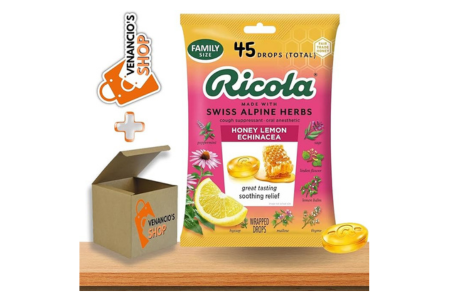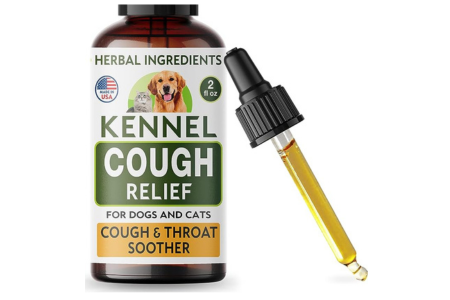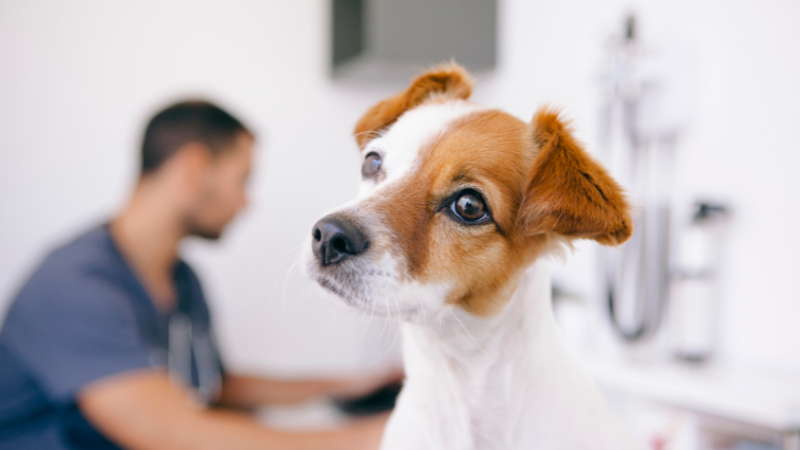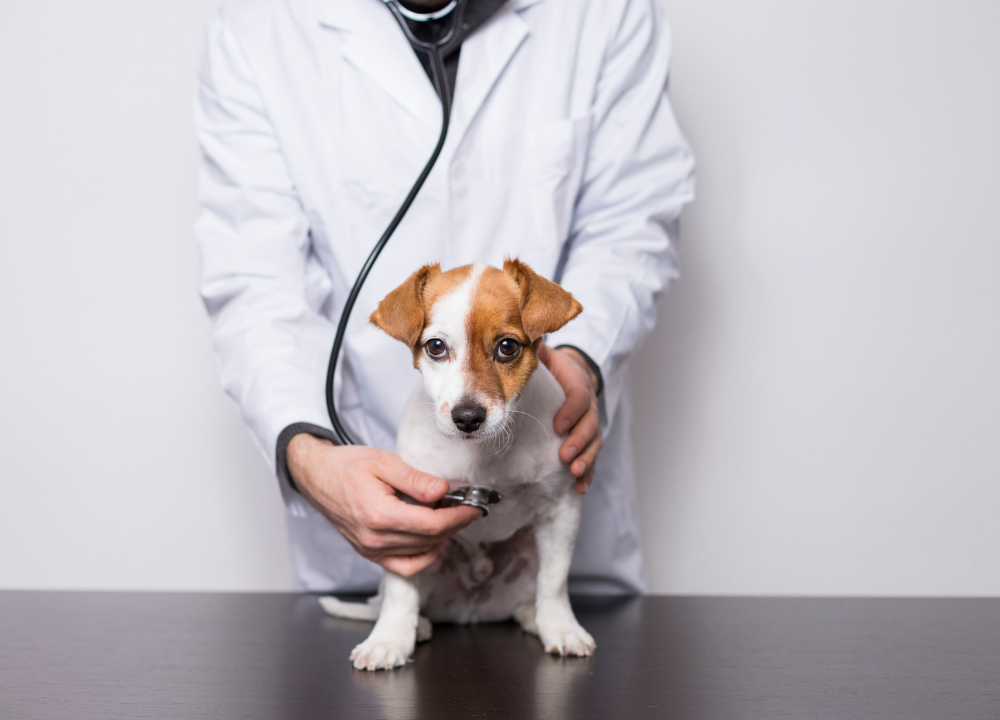Ricola cough drops can be harmful to dogs and should not be given to them. Dogs should not consume human medications without consulting a veterinarian.
Many dog owners may wonder if it’s safe to give their furry friends Ricola cough drops when they are experiencing coughs or throat irritations. While these herbal drops may provide relief for humans, it’s important to understand that dogs have different sensitivities and metabolism.
Before reaching for a cough drop as a quick remedy, it’s crucial to consider the potential harm it may cause to your canine companion. This article will explore the reasons why Ricola cough drops are bad for dogs, the potential risks they pose, and alternative methods of soothing your dog’s cough or throat discomfort. By understanding the potential dangers, you can ensure the health and well-being of your beloved pet.
Ingredients In Ricola Cough Drops
Ricola cough drops have long been a popular choice for soothing sore throats and mild coughs in humans. But, as responsible pet owners, it’s essential for us to consider the potential risks an ingredient may pose to our furry friends. Let’s take a closer look at the ingredients in Ricola cough drops to better understand their impact on our beloved dogs.
Exploring The Ingredients
When it comes to evaluating the safety of any product for dogs, the understanding of its ingredients is crucial. One recurring ingredient in Ricola cough drops is menthol. Menthol is a compound derived from peppermint oil and is commonly used for its cooling and soothing properties. In humans, it has been widely accepted as a safe and effective ingredient. However, it’s important to note that dogs may have a different reaction to menthol due to their unique physiology.
Another frequently found ingredient in Ricola cough drops is lemon balm. Lemon balm is a herb that belongs to the mint family and is known for its calming properties. It’s often used in cough drops to provide relief from irritated throats. While lemon balm is generally safe for dogs, some dogs may experience digestive upset if exposed to higher doses.

Here’s a breakdown of the ingredients found in Ricola cough drops:
| Ingredient | Description |
|---|---|
| Menthol | An organic compound derived from peppermint oil, providing a cooling sensation. |
| Lemon Balm | A herb known for its calming properties, used to relieve irritated throats. |
Potential Risks For Dogs
While the ingredients in Ricola cough drops are generally considered safe for humans, it’s essential to recognize that dogs have different sensitivities and metabolic processes. Dogs have been known to react negatively to certain ingredients that are otherwise harmless to humans. Menthol, for example, can cause gastrointestinal upset, including vomiting and diarrhea, if ingested in large quantities by dogs. Additionally, some dogs may be hypersensitive to lemon balm, which can lead to stomach discomfort.
It’s crucial to remember that dogs lack the enzymes necessary to metabolize certain substances we humans can tolerate. Therefore, it’s always recommended to consult with a veterinarian before giving any human medications, including cough drops, to your furry friend.
In conclusion: While the ingredients in Ricola cough drops may offer relief to humans, it’s important to exercise caution when it comes to our canine companions. Always prioritize your dog’s health and consult with a veterinarian before introducing any human medications, as they can best guide you on appropriate treatments and potential risks.
Effects Of Ricola Cough Drops On Dogs
Ricola cough drops are a popular option for soothing coughs and sore throats in humans. However, when it comes to our furry friends, it’s important to be cautious about what we give them. While Ricola cough drops might provide relief for us, they can potentially have adverse effects on dogs. Understanding the possible adverse reactions and signs of toxicity in dogs is vital to ensure their well-being if they accidentally consume these cough drops.

1. Possible Adverse Reactions
When dogs consume Ricola cough drops, several adverse reactions can occur due to their ingredients. Some of these ingredients, such as menthol and eucalyptus, can be harsh on a dog’s digestive system and overall health.
These adverse reactions may include:
- Upset stomach and diarrhea
- Vomiting
- Excessive drooling or salivation
- Abdominal pain or discomfort
- Lethargy or weakness
It is important to note that the severity of the reaction can vary depending on the individual dog and the quantity of cough drops consumed.
2. Signs Of Toxicity In Dogs
In more severe cases, the ingredients in Ricola cough drops can lead to toxic effects on dogs. Dogs have different metabolisms compared to humans, and certain substances that are safe for us may be harmful to them.
Signs of toxicity in dogs may include:
- Difficulty breathing or wheezing
- Irregular heart rate
- Seizures
- Tremors or muscle spasms
- Loss of coordination
These symptoms can indicate a medical emergency, and immediate veterinary attention should be sought if any of these signs are observed. Prompt treatment can help prevent further complications and ensure the best outcome for your beloved pet.
In conclusion, it is crucial to be mindful of the potential effects of Ricola cough drops on dogs. Their sensitive digestive systems and unique metabolisms can make them more susceptible to adverse reactions and toxicity. If you suspect that your dog has ingested Ricola cough drops or is experiencing any abnormal symptoms, contact your veterinarian for guidance.
Alternatives To Ricola Cough Drops For Dogs
When your furry friend is coughing and throat irritation sets in, it’s natural to reach for some cough drops. However, it’s important to remember that not all cough drops are safe for dogs. While Ricola cough drops might be a go-to remedy for humans, they are not suitable for our four-legged companions. Ricola cough drops typically contain menthol, eucalyptus, and other ingredients that can be toxic to dogs if ingested. So, let’s look at some safe alternatives to Ricola cough drops that can help ease your dog’s cough and provide relief.

Safe Cough Remedies For Dogs
Dog-friendly cough remedies are a great way to provide relief to your canine companion without any potential harm. Here are some safe alternatives to Ricola cough drops for dogs:
- Honey: Honey is a soothing and natural remedy that can help ease your dog’s cough. Its sticky texture helps to coat the throat and reduce irritation. A small amount, about half a teaspoon for small dogs and up to a tablespoon for larger dogs, can be given a few times a day.
- Mullein tea: Mullein tea is a herbal remedy known for its respiratory benefits. It can help with coughs, bronchitis, and other respiratory issues in dogs. Brew some mullein tea, let it cool, and offer a tablespoon to your dog once or twice a day.
- Marshmallow root: Marshmallow root is another natural remedy that can help soothe a dog’s cough. It has anti-inflammatory properties and can provide relief for irritated throats. You can create a tea by steeping marshmallow root in hot water, then allowing it to cool before feeding it to your dog.
- Spoonful of coconut oil: Coconut oil is a safe and natural remedy that possesses antimicrobial properties. Adding a small spoonful to your dog’s food can help soothe cough symptoms and provide relief.
Natural Remedies For Dogs
In addition to the safe cough remedies mentioned above, there are other natural remedies that can benefit your dog’s health and overall well-being:
- Steam therapy: Create a steam-filled bathroom by running hot water in the shower and letting your dog spend 10-15 minutes in the steam. The steam can help alleviate congestion and provide temporary relief from coughing.
- Increase humidity: Dry air can worsen cough symptoms. Adding a humidifier to your dog’s living area can increase humidity levels and help soothe their respiratory system.
- Proper hydration: Ensuring your dog drinks plenty of water can help keep their respiratory system hydrated and provide relief for coughing.
- Consult a veterinarian: If your dog’s cough persists or worsens, it is important to consult with a veterinarian. A professional will be able to accurately diagnose the cause of the cough and recommend the best course of treatment for your furry friend.
Remember, when it comes to your dog’s health, it’s essential to use remedies that are safe and suitable for their specific needs. By choosing the alternatives mentioned above, you can provide your dog with relief from coughing without exposing them to any potential harm.
Steps To Take If A Dog Consumes Ricola Cough Drops
It’s important to act swiftly if you suspect that your dog has ingested Ricola cough drops. While these herbal cough drops are generally safe for humans, they can pose potential risks to our furry friends. To ensure the well-being of your beloved pet, it’s crucial to take the following steps:
Recognizing The Ingestion
First and foremost, it’s essential to be able to recognize the signs of Ricola cough drop ingestion in dogs. Keep an eye out for symptoms such as:
If you notice any of these symptoms or suspect your dog has consumed Ricola cough drops, it’s crucial to act swiftly to prevent any potential complications.
Contacting A Veterinarian
Once you suspect or confirm that your dog has ingested Ricola cough drops, it’s critical to contact your veterinarian immediately. Even if your dog is not exhibiting severe symptoms, it’s better to be safe than sorry. Your veterinarian will be able to provide you with guidance on how to proceed and may request specific information such as:
- The quantity of cough drops consumed
- The active ingredients in the cough drops
- The size and weight of your dog
- Any preexisting health conditions your dog may have
A quick and accurate assessment by a veterinarian is crucial in determining the best course of action to ensure your dog’s well-being.
Potential Treatment Options
Once you have contacted your veterinarian, they will provide you with potential treatment options based on the severity of your dog’s condition. The treatment plan may vary depending on factors such as the quantity of cough drops consumed and the active ingredients present in them.
Some potential treatment options your veterinarian might recommend include:
- Inducing vomiting: This may be suggested if your dog has recently consumed the cough drops and the active ingredients are still in their stomach.
- Activated charcoal administration: Your veterinarian may suggest giving your dog activated charcoal to help absorb any remaining toxins in their system.
- Supportive care: This may include keeping your dog hydrated, monitoring their vital signs, and providing medication to alleviate any discomfort or pain.
- Observation and monitoring: In some cases, your veterinarian may recommend closely monitoring your dog at home to ensure no further complications arise.
- Other interventions: Depending on your dog’s specific condition, additional treatments or interventions may be necessary.
It’s essential to follow your veterinarian’s advice and closely monitor your dog throughout the treatment process. Prompt action and proper treatment can help prevent any potential long-term effects of Ricola cough drop ingestion.
Preventing Accidental Ingestion Of Ricola Cough Drops
Ensure the safety of your furry friend by preventing accidental ingestion of Ricola cough drops. Learn if these drops are harmful to dogs and the necessary precautions to keep them out of reach. Stay proactive in safeguarding your pet’s well-being.
When it comes to the health and well-being of our furry friends, it’s important to be proactive in preventing them from ingesting any harmful substances. Ricola cough drops, which are commonly used to ease symptoms of cough and sore throat in humans, can pose a potential danger to our dogs if consumed accidentally. To protect your pup from any unwanted health risks, it’s crucial to take measures to prevent them from accessing Ricola cough drops altogether. In this article, we’ll explore some practical tips and methods to ensure your dog’s safety.
Keeping Cough Drops Out Of Reach
One of the simplest yet effective ways to prevent accidental ingestion of Ricola cough drops is by keeping them out of your dog’s reach. Dogs are naturally curious and may perceive cough drops as a tasty treat. Store your cough drops in a secure location, such as a high cabinet or a locked drawer. By doing so, you can minimize the chances of your dog gaining access to them. Additionally, it’s essential to be mindful of where you place partially used cough drop wrappers, as dogs may be attracted to the residual scent. Dispose of them properly in a sealed trash can to avoid any potential mishaps.
Creating A Pet-friendly Environment
Besides storing cough drops safely, creating a pet-friendly environment is crucial for preventing accidental ingestion. Start by ensuring that any handbags, purses, or backpacks containing cough drops are kept out of your dog’s reach. Dogs are known for their exceptional ability to sniff out interesting scents and may rummage through your belongings in search of something intriguing. By keeping these items away from your four-legged friend, you can significantly reduce the risk of them stumbling upon cough drops.
Moreover, make it a habit to maintain a clean living space. Regularly vacuum and sweep your floors to remove any stray cough drops that may have accidentally fallen. Pay extra attention to areas where you typically consume cough drops, such as your bedside table or the couch. It’s essential to be diligent and proactive in keeping your living space free from any potential hazards.
In conclusion, preventing accidental ingestion of Ricola cough drops is a crucial step in safeguarding your dog’s health. By keeping cough drops out of reach and creating a pet-friendly environment, you can minimize the risk of your furry friend consuming these potentially harmful substances. Remember, a little extra caution can go a long way in ensuring the well-being of your beloved pet.
Frequently Asked Questions For Are Ricola Cough Drops Bad For Dogs
What Happens If My Dog Eats A Bag Of Ricola Cough Drops?
If your dog eats a bag of Ricola cough drops, contact your vet immediately. The ingredients like menthol and eucalyptus can be harmful to dogs.
Does Ricola Cough Drops Have Xylitol?
No, Ricola cough drops do not contain xylitol.
What Happens If My Dog Eats A Halls Cough Drop?
If your dog eats a Halls cough drop, it can be toxic due to menthol and other ingredients. Watch for symptoms like vomiting, diarrhea, and increased heart rate. Contact your vet immediately for guidance.
Do Halls Cough Drops Contain Xylitol?
No, Halls cough drops do not contain xylitol.
Conclusion
It is important to prioritize the health and well-being of our furry friends. While Ricola cough drops may be safe for humans, they can be harmful to dogs due to certain ingredients like menthol and eucalyptus oil. Consulting with a veterinarian is crucial for determining safe alternatives and proper treatment for our canine companions.
Let’s ensure we keep our dogs happy and healthy by being mindful of the products we use.








